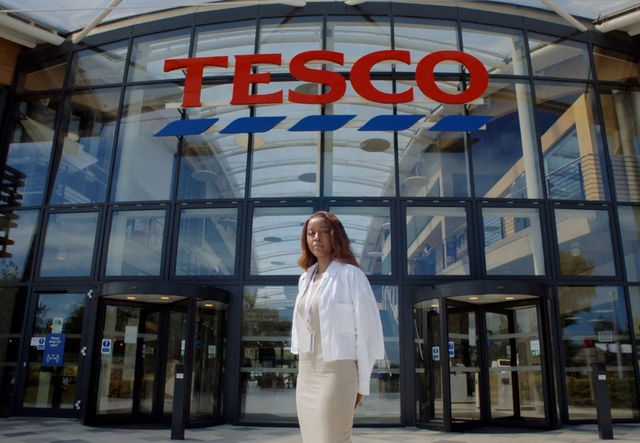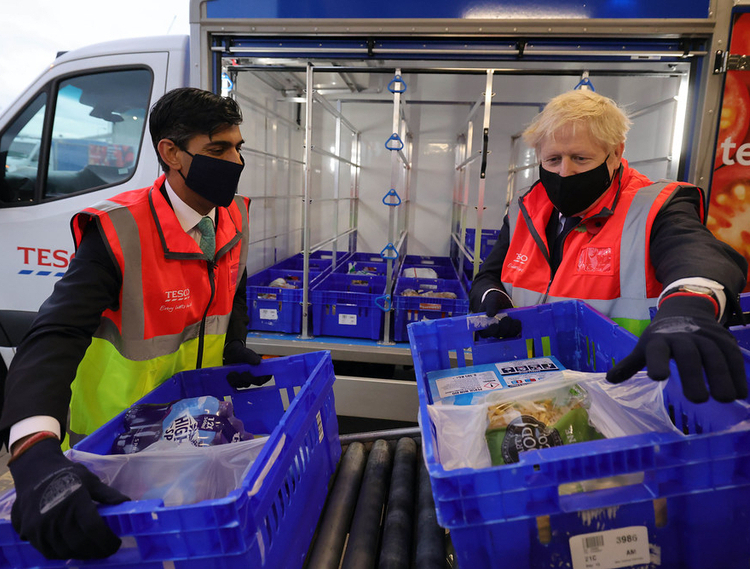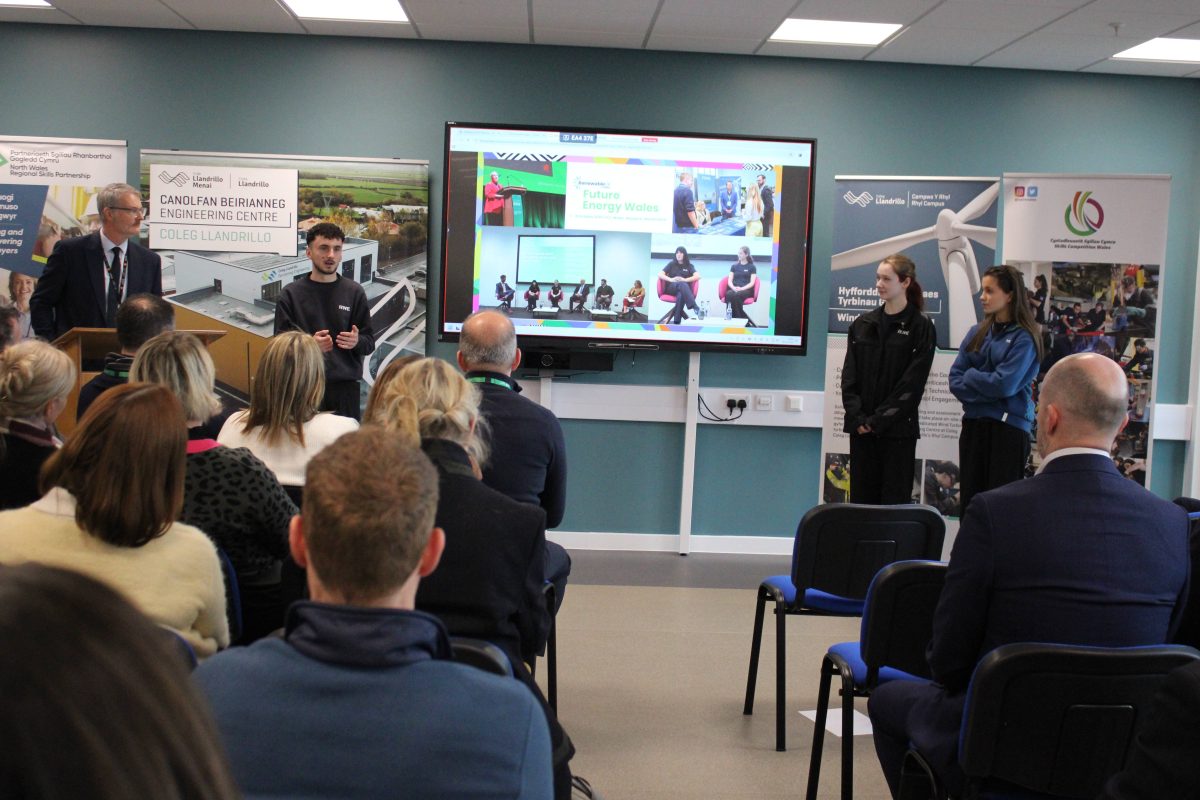Three in five young people from lower income households think their life goals are unachievable

@Tesco, in partnership with The @PrincesTrust, commits to help over 45,000 young people jumpstart their career and build employability skills
New report finds that post-pandemic young people nationwide have lowered their ambitions, young people from lower income families have less optimism, less career ambition and feel less equipped to compete in the job market.
‘Outlook inequality’ is stopping thousands of young people from achieving their potential, warns a new report from think tank The Social Market Foundation, supported by Tesco.
‘Outlook inequality’ is the idea that young people from some backgrounds have less belief in their ability to achieve their goals, which goes on to impact their lives and career prospects.
The research, which canvassed the opinions of over one thousand young people aged 16-25 up and down the country, found that while 60% feel optimistic for the future, a significant number feel increasingly pessimistic. In fact, overall, young people are less optimistic now than after the great recession of 2008/09.
Half say they have lowered their ambitions since the pandemic, and this rises sharply among those from lower income families who reported lower levels of optimism and career expectation and felt less equipped to compete in the job market.
- One third of young people (30%) said they expect to ‘end up in a dead-end job’ and that ‘people like me don’t succeed’, rising to 43% amongst those from lower income families.
- Two-fifths of young people (44%) said they thought few or none of their life goals were achievable, again rising sharply to 61% among those from less affluent backgrounds.
- One third of young people (34%) do not feel equipped to compete in the job market, rising to more than half (52%) among those from less affluent backgrounds.
- Young people from lower income families were twice as likely to not feel optimistic about the future (33%) and that they were discouraged by setbacks (47%).
The research highlights the stark impact ‘outlook inequality’ is having on the prospects of our young people today. Young people from lower income households were more likely to be put off applying for jobs, training, or education opportunities they wanted to go for. Many said they didn’t think they’d be good enough or had held back because they didn’t think they’d fit in and hadn’t seen people ‘like them’ do those things.
Against this backdrop of sizeable outlook inequality, Tesco has committed to helping over 45,000 young people build employability skills and jumpstart their careers in the next year, whatever their background.
Tesco will provide a range of potential opportunities to these young people through:
- Continued participation in the Government Kickstart scheme and offering work placements as part of our Movement to Work collaboration
- Thousands of permanent roles for young people across the Tesco business
- Offering degree apprenticeships, graduate roles, and a Business Diversity Internship
- Pre-employment and outreach in partnership with The Careers Enterprise Company, Speakers for Schools and IGD
To bolster Tesco’s ambition to support young people into meaningful careers, it is today (7 Jul) extending its partnership with leading youth charity The Prince’s Trust for a further five years with the ambition to reach 200,000 young people most in need.
Tesco and The Trust will provide confidence building and skills development programmes in hundreds of schools across the UK, including resources to support mental health and wellbeing.
Natasha Adams, Tesco’s Chief People Officer said:
“Inequalities in society are having a big impact on the outlook and chances of young people. At the same time, a whole generation is grappling with the disruption that COVID-19 has caused to jobs and education.
“We must not allow a two-tier system to emerge where some are equipped with the confidence to get on and others are left behind. Businesses like ours need young, diverse talent. We are committed to creating opportunities for all and want young people to see that everyone’s welcome at Tesco, whoever you are and whatever your background.”
Jonathan Townsend, UK Chief Executive, The Prince’s Trust said:
“We are enormously proud to be working with Tesco over the next five years to reach more young people and support them into the world of work. Young people’s employment prospects and aspirations have been hit hard by the pandemic and for those from disadvantaged backgrounds, it is harder still.
“This generation of young people have faced a disrupted education and now look to enter a volatile jobs market, so we need to make sure the odds don’t stay stacked against them. More than ever, it’s crucial that we work with partners like Tesco to support young people to upskill, train and access job opportunities; long term commitments such as these mean we can make a real difference to the lives of young people across the UK.”
Fiona Miller, Director of People Programmes at IGD, said:
“We’re proud to be a pre-employment partner with Tesco as it announces its commitment to help more than 45,000 young people build their employability skills and jumpstart their careers in the next year, whatever their background.
“The food and consumer goods industry is the UK’s largest private sector employer, employing one in seven people. IGD is uniquely placed to bring together industry professionals and young people to deliver nationwide employability skills development programmes, to tackle youth unemployment at scale.
“We’re working in partnership with Job Centre Plus, secondary schools and colleges and some of the biggest names in the FMCG industry, including Tesco, to deliver large-scale virtual work experience programmes to thousands of young people, to help build confidence and the employability skills needed for a fulfilling career in the industry.
“By working together, to date we’ve given 60,000 young people vital employability skills training to develop their capability and potential to thrive in the workplace. And it’s great to see how our work experience programme is already having an impact, with 91% of previous participants telling us it’s developed their skills and 86% telling us they’re more confident about their employment prospects. Many have got in touch to tell us how this support has already helped them to secure a job!
“Our next virtual work experience week is taking place on 26-30 July. Once again, we’ll be bringing together professionals from major retailers and manufacturers, from CEOs to apprentices, to run daily masterclasses on sales and marketing, engineering and technology.
“These activities, delivered in partnership with businesses such as Tesco, provide vital support and training to kick-start young peoples’ careers at a time when they need it most, as well as supporting the attraction of young talent into our fast-paced, innovative and resilient industry.”
Tesco’s commitment to create opportunities for over 45,000 young people comprises of new hires (on average Tesco hires over 9,900 young people under the age of 25 every year through a combination of roles of all levels, work placements through the Government Kickstart scheme and others, apprenticeships, graduate and internship opportunities.) and the projected reaching of 29,796 young people with the Prince’s Trust in the year 2021-22 (through a combination of Achieve Clubs, employability workshops, experience of the workplace, volunteering and mentoring) and a further 5,230 young people with IGD, Speakers for Schools and the Careers and Enterprise Company).
Methodology: The Social Market Foundation conducted research in May and June 2021. This included new analysis of existing data sets, including Understanding Society, new research with 1,009 young people aged 16-25 carried out by Opinium between 31.05.21 to 04.06.2, and qualitative interviews with young people. The Social Market Foundation is a non-partisan, cross-party think-tank and registered charity. It retains full editorial independence with regards to this and all of its research and publications. The SMF is committed to publishing the names of all its sponsors and funders.












Responses